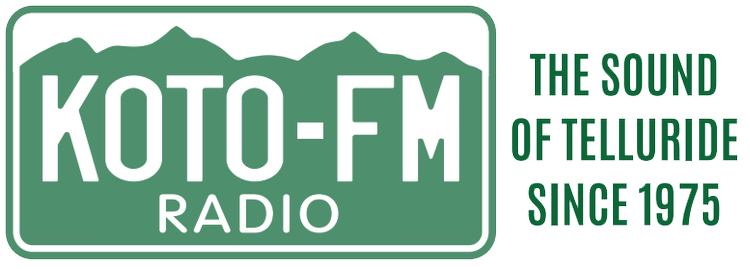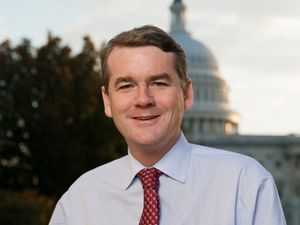By Julia Caulfield
The 2022 elections will be here before you know it, and candidates are hitting the campaign trial. This week, Governor Jared Polis stopped in the mountain community of Telluride to meet with voters and share his vision for the future of Colorado. KOTO’s Julia Caulfield has more.
Brown Dog Pizza is bustling when Governor Jared Polis makes his entrance.
Polis made a campaign stop in Telluride this week, along with visits to Norwood’s Pinion Park Neighborhood – talking about community housing, and discussions in Rico regarding wildfire management.
“Look, we live in a great state, here in Colorado, and together we’ve gotten so much done over the last three years, and it has been the honor of my life to serve as your Governor,” Polis says to the crowd.
Polis is running for his second term as governor. He says this election is about moving Colorado forward, rather than backwards.
“Moving forward with a woman’s right to choose. Moving forward with opportunity for everybody, investing in our schools, and making life more affordable in Colorado and reducing cost,” says Polis, “We got a hundred things done, over the next year, that will really save Coloradans money - $750 check going out to every person, removing sales tax from items like diapers, tax credits for low and middle and income families – so many things, but there’s a lot more work ahead to help make Colorado an even more amazing place.”
While a campaign focused on tax breaks and refunds may sound like a more traditionally Republican message, Polis says the key is looking at who is saving money.
“Too often Republicans try to save money for the wealthy and the big corporations. What we’re talking about is saving money for everyday Coloradans – that means reducing costs, reducing sales tax, reducing property tax, things that really affect every day Coloradans. When you’re around the kitchen table figuring out your budget, we know there’s inflation nationally, what the State does can’t affect what that is, but what we can affect is what we’re going to reduce your cost every day and every month and that’s really what our agenda is focused on,” Polis adds.
Outside of strict economics, Polis says his priorities include helping to make housing affordable for Coloradans, and keeping them safe when it comes to wildfire.
“Really with the hotter, drier climate across the American West, here in Colorado. We really need to up our game on fire preparedness,” Polis explains, “We just rolled out additional support for community efforts around reducing wildfire risk and risk mitigation, taking down trees near homes and communities. We also have leased and purchased additional State firefighting capacity, and we’re working with all our volunteer fire districts to make sure they have what they need to keep people safe, no matter where you live in Colorado.”
Acknowledging the national stage, Polis says the state itself is more important than ever in protecting freedom.
“I mean freedom that we took for granted because of the Supreme Court are being eroded,” Polis sasy, “Whether that’s the freedom to marry who you love, control over your own body and your own reproductive health decisions. These are things that we now, as a state, need to say ‘this is a basic value. We celebrate and protect our rights as individuals to make the choices that we want to make for our own lives.’”
Governor Polis has served as Colorado’s governor since 2019. He is set to face off at the polls this November against Republican nominee Heidi Ganahl.





